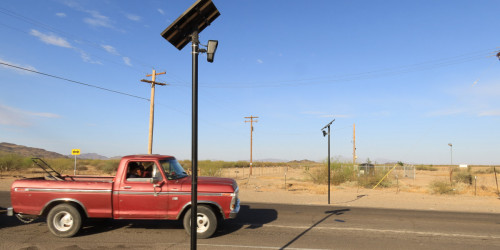Since the California legislature passed a 2015 law requiring cops to get a search warrant before probing our devices, rifling through our online accounts, or tracking our phones, EFF has been on a quest to examine court filings to determine whether law enforcement agencies are following the new rules. We have been especially concerned that cops and the courts have been disregarding the transparency measures baked into the California Electronic Communications Privacy Act (CalECPA).
As it turns out, our suspicions were well warranted. A lawsuit we filed last year against the San Bernardino County Sheriff’s Office has turned up evidence that potentially hundreds of digital search warrants have been improperly and indefinitely sealed, blocking the public’s right to inspect court records.
EFF, represented by the Law Office of Michael T. Risher, has filed a formal request with the Presiding Judge of the San Bernardino County Superior Court to review and unseal 22 search warrants that appear to be sealed in violation of California’s penal code. We are also asking that the court “take whatever steps are necessary to ensure that similar files—both in the past and in the future—are open to the public as required by law.”
Read EFF’s letter to the San Bernardino County Superior Court Judge John P. Vander Feer.
When CalECPA was passed, it was hailed as the “Nation’s Best Digital Privacy Law” by outlets such as Wired, because it prevents the government from forcing companies to hand over electronic communications, files, or metadata, without first obtaining a warrant. It similarly requires the government to obtain a warrant before searching our devices or tracking our location through our devices. This includes the use of cell-site simulators, a surveillance technology that masquerades as a fake cell phone tower to connect to a target’s phone. The law also included several accountability measures, such as requiring agencies to file public disclosures with the California Department of Justice, which EFF uses to identify search warrants across the state that deserve greater scrutiny deserving of great scrutiny.
Last year, EFF picked out six suspicious warrants filed by the San Bernardino Sheriff for a deeper dive, since they all referred to the use of a “cell-site stimulator” (a misspelling guaranteed to make privacy advocates snicker). Those were the only warrants to directly make reference to the technology, even though the sheriff had separately disclosed to EFF that it had used a cell-site simulator 231 times in 2017 alone. The sheriff refused to turn over these warrants, and so EFF took the agency to court. We subsequently filed requests for 18 other CalECPA warrants, including searches of devices and accounts and phone surveillance techniques known as a pen register or a trap and trace. Again, San Bernardino County officials resisted handing over the records.
In many cases, San Bernardino County claimed the records could not be released since they had been indefinitely sealed by the court. San Bernardino only provided copies of two search warrant applications, which include sealing requests that were rejected by a judge. Based on these documents, we advise the court that it appears “the Sheriff’s Department requests indefinite sealing orders as part of every application for a warrant or court order under these statutes.”
The problem is that this isn’t how the system is supposed to work.
In 2016, the legislature changed state law to require that when an order for a pen register or trap and trace expires, so does any sealing order. Similarly, CalECPA requires that after a search warrant has been executed and “returned” to the court, the records can only be held secret for 10 days. After that the search warrants must be open to the public.
The passage of CalECPA represented a fundamental breakthrough for civil liberties in the digital age. But a law is only as good as its enforcement. If the San Bernardino courts and sheriff keep these records secret, then not only does that violate the will of the people of California, but it blocks the ability of the public to ensure that other elements of the law are also being obeyed.
San Bernardino may just be the tip of the iceberg. We hope courts in other jurisdictions take notice and also examine their CalECPA warrants to ensure the law is being followed.











